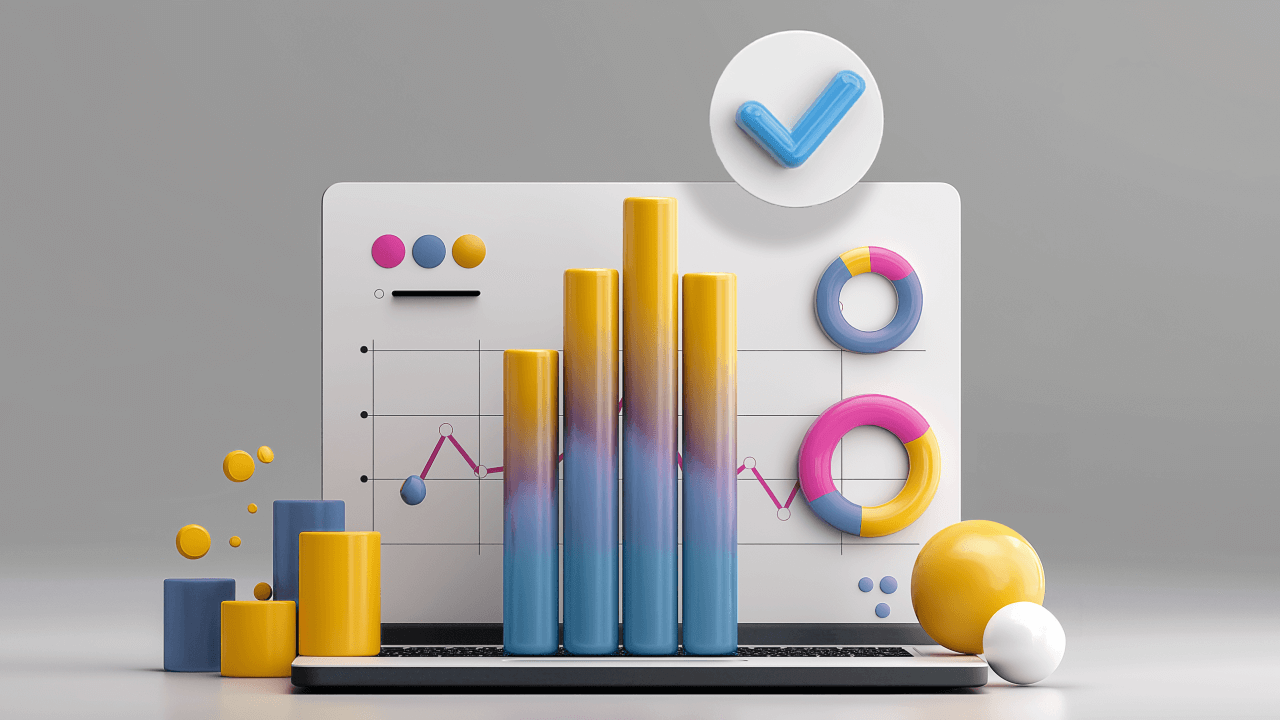How marketing analytics can improve your ecommerce business

The retail market is saturated with online stores, which makes it even more challenging for brands to stand out. Brick-and-mortar stores are increasingly moving their operations online while more and more new digital-native storefronts pop up daily.
Since the ecommerce market is so cutthroat, crowded, and competitive, ecommerce businesses need to put their best foot forward when it comes to marketing. Without a strong, effective marketing strategy, there’s no way to compete. Nowadays, that means leveraging the power of marketing analytics.
The digital transformation of businesses has enabled them to better understand their customers and provide tailored experiences that drive loyalty and word-of-mouth marketing. Utilizing marketing analytics enables companies to implement smarter strategies and tactics based on data rather than hunches or intuition.
These insights also enable marketers to identify potential new customers, track the performance of advertising campaigns, and measure the success of in-store merchandising displays.
Data has become the most valuable commodity for businesses in this rapidly changing landscape. The ability to make data-driven decisions is critical to success—and when you can do it in real-time, you have a major advantage over the competition.

What is marketing analytics?
Marketing analytics is a data-driven approach to marketing and business planning that uses data analytics to drive decisions.
The goal is to inform strategic marketing decisions by analyzing historical and real-time data. With more insight into overall trends, businesses can make more effective decisions and formulate stronger, more valuable marketing strategies.
Marketing analytics is a process that uses data to inform marketing strategies and decision-making, which can be used to forecast and measure marketing efforts, identify customer segments, and better understand why customers make the decisions they do.
Marketing analytics usually happens in a business’s BI tool, which houses the data. The BI tool acts as the source from which marketers can run reports and analyses and then generate insights and recommendations. Marketers can use those insights to change strategies, tactics, and the overall direction of marketing.
How business intelligence can power marketing analytics
Marketing analytics is a process that uses data to inform marketing strategies and decision-making, which can be used to forecast and measure marketing efforts, identify customer segments, and better understand why customers make the decisions they do.
Business intelligence can be used in marketing analytics to provide the tools necessary to perform data analysis. A BI tool unifies a business’s marketing stack, allowing marketers to integrate all of their data into one place.
From there, marketers can combine, compare, and configure the data from all of their different marketing channels to find insight across them. For instance, a marketer might combine their Google Ads data, their social media analytics data, and the data from their email automation tool to figure out the success of their digital marketing as a whole.
In short, business intelligence provides the foundation that marketing analytics is built on. Marketing analytics uses data to inform marketing decisions, while business intelligence provides the context necessary to understand those decisions.
The goal of both processes is to improve business performance by making better-informed decisions.
4 ways marketing analytics can supercharge your ecommerce sales
If you’re like most ecommerce businesses, you’re always looking for ways to increase sales and grow your business. Here are some of the best ways you can utilize marketing analytics to do just that:
Measure your ROI and identify potential opportunities
By measuring your return on investment, you can identify opportunities to increase your profits. You can also discover what aspects of your marketing efforts are generating the best ROI and which ones may need improvement
By reviewing customer journey analytics, you can identify the best channels to generate leads and the appropriate times to send out marketing communications. These sorts of analytics allow you to see how people behave on your site; what sort of links they click through, when they’re most likely to abandon their cart, and so on.
By tracking customer purchases and sales, you can identify the best-selling products or services and work towards increasing their popularity. You can also track how products and services are purchased and what sort of channels drive the most traffic.
By measuring sales data, you can discover new products to sell or identify the best times to add new products to your offerings. This means that you can keep your inventory fresh and exciting without overloading your customers with too many choices.

Build relationships with customers
Marketing analytics can help you uncover which customer segments are your most valuable. This enables you to focus on delivering a superior experience for these critical customers.
It can also help you understand which customer segments are not happy, and why they are not satisfied. From there, you can adapt your marketing strategies to meet their needs or develop products that’ll perform better with them.
Marketing analytics can also show where you’re failing to grab customers. You can track abandoned carts, unopened emails, website bounce rates, and other metrics that show where you’re going wrong.
By tracking customer sentiment, you can understand the general mood of your customers and identify any negative feelings they may have towards your brand, products, and/or services. You can also track and respond to compliments and praise that customers leave online.
This is especially important for social media outreach, which is far more difficult than other channels. Many BI tools offer sentiment analysis features, which can help you judge overall customer opinion of a marketing campaign.
Identify the best-performing products and services
Marketing analytics can help you determine which products and services should be highlighted and promoted most. This can help increase your sales and attract more customers. You can also determine which products and services should be eliminated or downplayed.
From there, marketers can come up with strategies that play to your product’s strengths. For example, if most site visitors are coming to your site to buy one specific product, you can make the buying process for that product easier, or add more upsell opportunities along that buying process.
In addition, you can track customer reviews and feedback to determine which products and services are most loved and which ones could use some improvement. This can help you spot unexpected insights—sometimes, customers enjoy products for reasons that marketers could never anticipate.
Boost your email success
One of the most critical aspects of ecommerce is email marketing. Email is one of the simplest and most effective marketing channels, so coming up with a data-driven email strategy is essential.
Customers who would never click through a banner ad or select the paid search options on Google in a million years will happily open up marketing emails and click through the links inside. It’s the difference between seeing a billboard and getting a hand-written letter.
With marketing analytics, you can quickly identify the best times to send emails to your subscribers. It can also help you identify the best types of emails to send and the best content to include.
By tracking the click-through rates and conversion rates of emails, you can determine the types of emails that are most successful. You can also decide which types of content are most popular among subscribers.
By reviewing subscriber data, you can determine which groups of subscribers are most responsive to email messages. This can help you prioritize your email marketing efforts and focus on the most responsive segments.

How you can get started with marketing analytics
There are a few key things you need to do to get started with marketing analytics.
First, you need to identify your goals. What do you want to achieve with marketing analytics? Do you want to increase sales, boost your email success, or improve customer relationships? A BI tool can accomplish all three, but it’s important to prioritize.
Next, you need to collect the data. This data can come from a variety of sources, such as your website, social media, and email marketing. You’ll need to track this data over time to see how it changes. A BI tool helps you connect to your data sources and compare them.
Finally, you need to analyze the data. BI software can help you visualize the data and spot trends. In some places, it can also help you automate the analysis process. A BI tool is the best solution for performing data analysis, regardless of the purpose.
The bottom line
Marketing analytics can help you grow your ecommerce business by providing insights into your current marketing strategies and identifying opportunities to improve them. From measuring your ROI to determining which products and services to promote, marketing analytics can help you increase sales and attract more customers.
By measuring your current marketing efforts and identifying opportunities to improve, you can implement smarter strategies that are proven to be successful. By implementing these strategies, you can increase your sales and attract more customers to your company.
Are you ready to try the future of marketing analytics powered by BI? BI platforms give you the insights you need to make data-driven decisions. With a business intelligence tool, you can collect data from all your marketing channels in one place, then visualize and analyze it to identify trends and opportunities.
Domo transforms the way these companies manage business.








